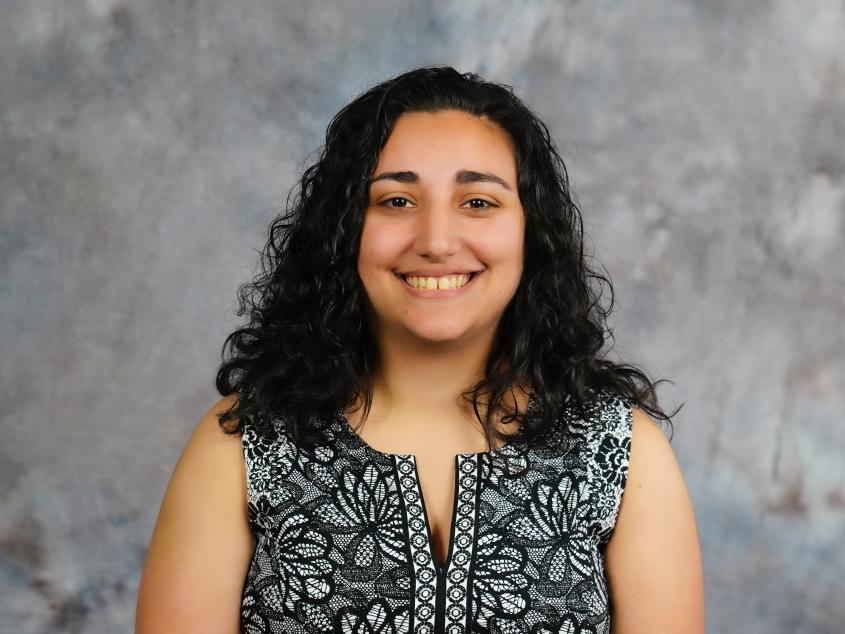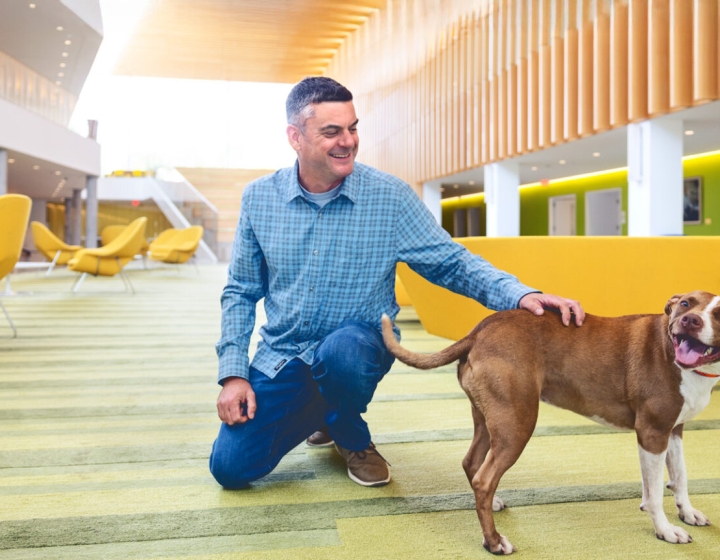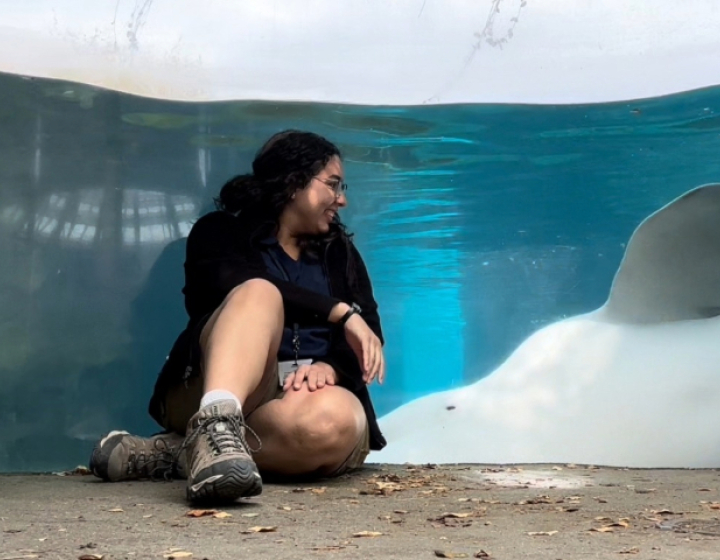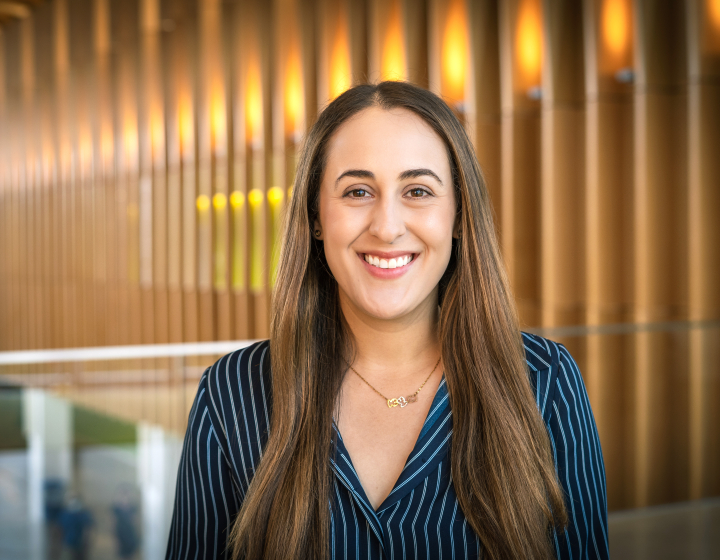New faculty: Shana Mintz '11, D.V.M. '15
The Cornell University College of Veterinary Medicine (CVM) has recently welcomed many new faculty members to our academic departments and hospitals, each one bringing a unique set of skills and experience that enriches our college every day. In this Q&A series, you'll get to know their interests, expertise and more.
Shana Mintz '11, D.V.M. '15, assistant professor of in the section of cardiology, Department of Clinical Sciences
Q: What has been your academic/career path leading up to Cornell?
I attended veterinary school at Cornell and graduated in the Class of 2015. Afterwards, I completed a one-year small animal rotating internship at the Animal Medical Center, followed by a one-year cardiology research fellowship at NYU School of Medicine. I then returned to Cornell for residency in Cardiology (2017-2020), and upon completion I returned to NYU School of Medicine for a post-doctoral research fellowship (2020-2022).
Q: What drew you to CVM?
As a student and a resident, Cornell was a place where I had both the comfort of supportive people around me, and the challenge of academic rigor and a push for knowledge and innovation. This previous experience with Cornell vet gives me confidence that it is an ideal place for me to begin my career as a faculty member.
Q: What is your clinical/scientific area of expertise?
Cardiac electrophysiology – the study of the electrical signals in the heart and how they can “misfire” to cause arrhythmias.
Q: What drew you into this area? Any specific experiences, mentors, influences that helped guide you?
Dr. Sydney Moise has been a mentor since I was a veterinary student. She offered guidance for obtaining a cardiology residency and board certification, but more importantly she passed on to me her passion for a deeper understanding of the electrical workings of the hearts. This has had a great impact on the way I approach both clinical cases and scientific study.
Q: What past professional work are you most proud of and why?
I am most proud of my research completed during my post-doctoral fellowship at NYU School of Medicine. While in that position, I was able to collaborate with a team of Ph.D.s and M.D.s to gain valuable information about proteins that can cause arrhythmias in mice, which can have broad implications to other animal species and humans.
Q: What about your clinical work are you most excited about and why?
I am most excited about helping to broaden the research impact of the cardiology department at Cornell. Cornell cardiology already is one of the world’s leaders in innovative clinical medicine and procedures, and we are now able to expand that innovation into the laboratory space in a way that bridges basic science and clinical medicine.
Q: What impacts or applications do you hope to see your work have on the world, human/animal/planetary health?
I hope to use my research to foster a greater understanding of the normal workings of the cardiac conduction system, and the ways in which dysfunction of this system can lead to disease. My hope is for this research to influence the ways that arrhythmias are understood and ultimately treated, saving animals and people from their often-severe consequences.
Q: What clinical/scientific questions are you looking to answer next/areas you plan to explore?
I will be establishing a laboratory to study the mammalian sinus node – this is the area of the heart where all normal heart beats originate. The function of the sinus node is fascinating – not only does it make sure the heart is beating all the time, it also makes sure it is beating at a heart rate that is compatible with what the animal is doing (think of your heart rate increasing with exercise and decreasing while asleep). When the sinus node is not functioning properly, it can lead to exercise intolerance and collapse episodes, and often requires a pacemaker implantation as treatment. My laboratory will study the factors at play in both normal sinus node function and the disease of the sinus node, called “sick sinus syndrome.”
Q: What’s something most people don’t know about you?
I was a figure skater when I was younger, and although I no longer participate in the sport, I remain an avid fan! I am excited to attend the Figure Skating World Championships in 2024, when they return to North America for the first time since 2016, to watch a live competition.
Q: What’s the best part of being a clinician/scientist?
I like to think of myself as a “clinician-scientist”, and this unique position has the rewarding perspective of being able to think about research questions with an eye towards real world implications (rather than pure pursuit of knowledge). Relating a finding in the laboratory to an animal in front of you that you are help - that is my favorite part.
Q: What’s the most challenging part?
Despite what I described above as being rewarding, there is a balancing act involved in participating in clinical, research and teaching activities. It can be a challenge to work through where to focus your efforts at any time, to stay as engaged as possible in all aspects of the position.
Q: What are the benefits of working at CVM? At Cornell?
The biggest benefit to working at Cornell are the people – the staff within the hospital, the students, the research collaborators. Cornell is a community that is built on striving for excellence in education, clinical care and research by allowing everybody to be the best version of themselves in their work environment.






